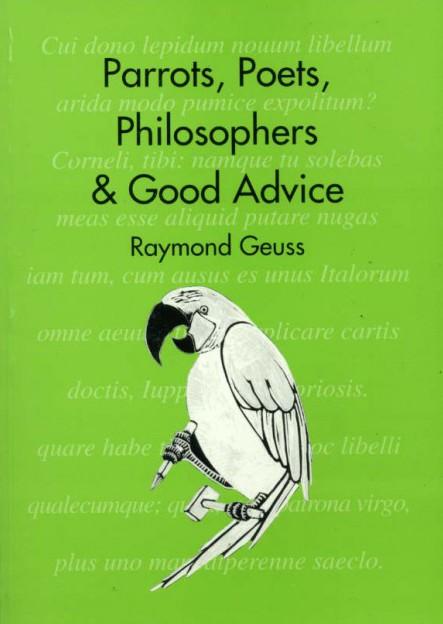Publications

Parrots, Poets, Philosophers and Good Advice
writerRaymond Geuss
Raymond Geuss, Professor of philosophy at Cambridge University and author of the seminal The Idea of a Critical Theory and Morality, Culture & History is also a poet.
Here, he has gathered together a series of instructional poems on how to live based on the works of Plato, Catullus, Juvenal, Martial, Euripides, Sappho and Aeschylus, whose works appear in the original Latin and Greek alongside Geuss’s contemporary equivalents.
Topics include eating, drinking, work, indigency, old age, looks, cleanliness, sex, death, and the posthumous evaluation of human achievement.